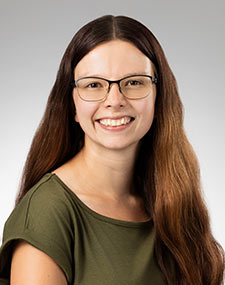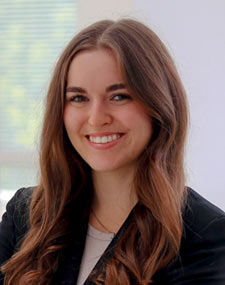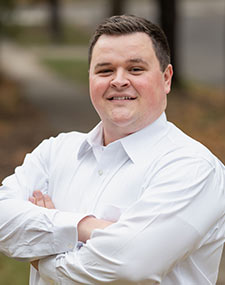Center for Equal Access
The Center for Equal Access exists to foster an inclusive community for all students, with a focus on furthering the education, understanding and promotion of students with disabilities.
The Center for Equal Access exists to foster an inclusive community for all students, with a focus on furthering the education, understanding and promotion of students with disabilities.
We support the Social Model of Disability in our mission to celebrate the diversity of learners and embrace all abilities. We help students navigate through college with a disability or medical condition, assisting them to address challenges and find resources to aid them on their journey. We advocate on behalf of students and teach them the skills to advocate for themselves. We empower students to recognize that a disability is a difference, not a deficiency or limitation.
Any student who needs assistance in gaining equal access to classes or College resources due to physical, psychological or learning disability, as well as attention deficit/hyperactivity disorder, a visual or hearing impairment and/or chronic medical condition should request assistance through this office. Contact us at access@css.edu to set up an appointment or for more information.
Students and Disabilities in College
If you have a disability or chronic medical condition and would like to explore accommodations and resources, please visit the .
You can find more information regarding our office and accommodations by visiting or by emailing us at access@css.edu.
What does it mean to have a disability?
A disability, as defined by the Americans with Disabilities Amendments Act of 2008, is “a mental or physical impairment that substantially limits one or more major life activities, having a record of such impairment or being regarded as having such impairment.”
- Major life activities that might be impacted by having a disability include, but are not limited to:
- caring for oneself, performing manual tasks, seeing, hearing, eating, sleeping, walking, standing, lifting, bending, speaking, breathing, learning, reading, concentrating, thinking, communicating, and working.
- This definition also includes anyone with a chronic medical condition that affects the following areas:
- Immune, Respiratory, Circulatory, Endocrine, Digestive, Reproductive, Neurological, Brain, Normal Cell Growth, Bowel, and Bladder
How is having a disability in college different than in high school?
While every student has challenges, students with a disability, diagnosis or chronic health condition that may impact their living and learning environment should examine what resources and opportunities are available to them to make their transition to college successful. There are some fundamental differences between high school and college, and it is important for you to know and understand these differences. Review the links to the right and the information below as you prepare to transition to college:
Student Perspectives
Obtaining Accommodations
All accommodations are determined through an interactive process that involves the engagement of both the student and CEA staff. Prior or current accommodations in high school or at another college/university do not automatically transfer to ����Թ�.
Students who previously registered with CEA for accommodations and have taken a break from CSS for one semester or more, changed modalities (online vs. in person) and/or are starting a post-bac/graduate program must meet with an Access Specialist to reassess accommodations. The meeting is required as accommodation processes and needs may change depending on the program, modality and length of time a student has been away. Previous accommodations expire once you leave, change modalities and/or graduate and can not be used until this meeting has occurred.
Representative List of Accommodations
- Time and one-half
- Distraction reduced testing environment
- Extended deadlines for assignments
- Use of audio note-taking
- Alternative format textbooks
- Single room
- Emotional support animal
- Temporary accommodations for injuries
Accommodations Are Not
- An unfair advantage
- Granted if they fundamentally alter the outcomes of the class
- Retroactive. The accommodation(s) begin once a student requests the letters of accommodation
Academic Accommodations
What is an Academic Accommodation?
An academic accommodation is an adjustment to the delivery of course content made for a student with a disability to ensure equal opportunity to complete the outcomes of the course.
- Accommodations include, but are not limited to, access to auxiliary aids and alternative methods participation, assignment completion, or testing.
Related Notes
- Prior or current accommodations in high school or at another college/university do not automatically mean the student will receive any accommodations or the same accommodations at ����Թ�.
- Faculty and Staff will only provide academic accommodations that are recognized by The College.
- Certain accommodations (e.g. alternative testing, auxiliary aids, consideration for absence or extended time, voluntary note-taker) have additional procedures which must be followed.
Steps to Obtaining an Academic Accommodation:
- If this is your first time requesting accommodations, go to the If you are already connected with our office, please submit a supplemental request form in .
- Meet with a staff from the Center for Equal Access. The Center for Equal Access will contact you, once the new accommodation request was received, to schedule a meeting.
Clinical Accommodation
What is a Clinical Accommodation?
Clinical Accommodations are accommodations that are put into place in the clinical or field rotation setting.
Steps to Obtain a Clinical Accommodation:
- If this is your first time requesting accommodations, go to the . If you are already connected with our office, please submit a supplemental request form in . You will be asked to submit documentation. If you have it upon submission of the request, please do so.
- Meet with a staff from The Center for Equal Access. The Center for Equal Access will contact you, once the new accommodation request is received, to schedule a meeting.
- The Center staff will consult with the program chair or designee to ensure the accommodation request does not fundamentally alter the outcome of the clinical or field rotation.
- The student is notified of the decision. If the accommodation is denied, the student is given a rationale. The Center staff will engage the student in discussing other equally effective accommodations.
- The clinical site is then notified of the student’s accommodation through the program liaison of clinical or field rotations.
Housing Accommodation
What is a Housing Accommodation?
The College seeks to provide housing to students with all abilities and needs and will make necessary adjustments to living environments to students who disclose a disability or medical condition and warrant the adjustment. Housing accommodations may include but are not limited to: a single room accommodation, nut-free living environment, adjustments to the environment.
Timeline and Deadline
New students: in order to have accommodations considered before placement, all steps for the housing accommodation process need to be completed, including documentation, requests, meeting with CEA and housing contract completed with Residential Life by June 30.
Current/Upper-Class Students: in order to have housing placement accommodations considered before placement, documentation and requests need to be submitted to CEA by February 1st.
All other requests will be processed on a rolling, first come, first serve basis, depending on availability.
Steps to Obtain a Housing Accommodation:
- A student must be a person with a disability as defined by the Americans with Disabilities Amendments Act of 2008.
- If this is your first time requesting accommodations, go to the . If you are already connected with our office, please submit a supplemental request form in .
- A student should provide proper documentation, the , from a licensed practitioner treating the disability, stating the functional limitations of a disability related to the housing environment. Equally effective documentation may be considered.
- This completed Housing Accommodation Form must be delivered to the Center for Equal Access via email access@css.edu, confidential fax 218-733-2251 or mail the Center for Equal Access Box 2325 1200 Kenwood Avenue Duluth, Minnesota 55811.
- Meet with an Access Specialist from the Center for Equal Access to review their request and documentation. An Access Specialist will be in contact to arrange this meeting.
- Before the accommodations are approved, the Access Specialist will consult with Residential Life. Depending on the circumstances, the request may go to the Access Committee.
- If the accommodation is approved, the student will be notified and will work with the Center and Residential Life for any final steps. If the accommodation is denied, the student will be given a rationale and the right to appeal. The Center will engage the student in discussion of other equally effective accommodations.
Emotional Support Animals
What is an Emotional Support Animal Accommodation?
An Emotional Support Animal (ESA), also referred to as an Assistance Animal is an animal that offers assistance, work, perform tasks or services for the benefit of the person with a disability; and/or provide emotional support that alleviates one or more of the identified symptoms. An ESA is NOT considered a service animal. An ESA is protected under the Fair Housing Act, not under the Americans with Disabilities Act or Section 504 of the Rehabilitation Act.
Timeline and Deadline
Incoming new students: to have an accommodation for an ESA in place prior to move in date, all steps for the request need to be completed by June 30. All other requests will be processed on a rolling case-by-case basis. Please be advised that such requests may take up to thirty (30) business days to process.
The animal is not allowed to reside on campus until the request has been approved by both The Center for Equal Access and Residential Life. Having your animal reside on campus prior to approval will require immediate removal of the animal and could result in a Pet Policy fine.
Steps to Obtain an Emotional Support Animal Accommodation:
- A student must be a person with a disability as defined by the Americans with Disabilities Amendments Act of 2008.
- A student should provide proper documentation from a licensed practitioner treating the disability, stating the functional limitations of a disability related to the need for an Emotional Support Animal.
- The provider can complete our or they can provide alternative documentation that follows the guidelines set by the .
- This completed Emotional Support Animal Documentation Form must be delivered to the Center for Equal Access via email access@css.edu, confidential fax 218-733-2251 or mail The Center for Equal Access Box 2325 1200 Kenwood Avenue Duluth, Minnesota 55811 or by uploading it in Accommodate with your request.
- If this is your first time requesting accommodations, go to the . If you are already connected with our office, please submit a supplemental request form in . You will need to complete a Release of Information for Residential Life.
- Meet with an Access Specialist from the Center for Equal Access to review their request. An Access Specialist will be in contact to arrange a meeting.
- After that, if approved, a student must complete additional paperwork with Residential Life prior to bringing the animal to campus.
CSS Medical Parking
Steps to Obtain a CSS Medical Parking Pass:
- Students must complete a or a Supplemental Request on to initiate the process
- Students must also complete the . This can be attached to the request, emailed to access@css.edu, or delivered to The Center for Equal Access office, Science 1117. Documentation may be requested if documentation is not already on file with CEA or the condition is apparent.
- Once the request has been received, a CEA Access Specialist will reach out to the student to request documentation, if needed, or to schedule a meeting
- During the meeting, Access Specialists will review the request with the student and collect vehicle information. Students are required to have a valid CSS parking permit before a CSS Medical Parking Permit can be provided. CEA Staff will verify that a student has a valid CSS Parking Permit.
- Once the request is approved, students can pick up their CSS Medical Parking Permit from the CEA office, Science 1117. CEA Staff will then record the student’s vehicle information in a Google Sheet that will be shared with Campus Security. The student’s name will not be shared on the Google Sheet to maintain confidentiality.
Student Employment Accommodations
Steps to Obtain Student Employment Accommodations
A student must be a person with a disability as defined by the Americans with Disabilities Amendments Act of 2008.
If this is your first time requesting accommodations, go to the . If you are already connected with the Center for Equal Access, please submit a Supplemental form in Accommodate. You will be asked to submit documentation. If you have it upon submission of the request, please upload it with the request. If not, you will be asked to submit it before meeting to review the request.
Once the form is completed and documentation submitted, the student completes an interactive process meeting with an Access Specialist. In that meeting, student employment accommodations are proposed.
The Center for Equal Access staff will consult with Human Resources (HR) and possibly the student’s supervisor to discuss the request.
The student is notified of the accommodation decision.
If approved, the Center will send an accommodation letter to the supervisor and HR. The letter refers the supervisor to HR if there are concerns.
How are accommodations determined?
The process of determining appropriate and reasonable accommodations is a three-pronged approach guided by the Association for Higher Education and Disability (AHEAD):
- Student Self-Report: Students will complete a narrative summarizing their understanding of their diagnosis, how it impacts or limits them in the academic or learning environment, and a list of requested accommodations and/or accommodations used in the past.
- Meeting Discussion: The Center for Equal Access (the Center) and students will engage in an in-depth discussion of the self-report. They will review the student’s history with the diagnosis or condition, how it limits them and any other factors that may contribute to the situation.
- Documentation: Documentation may be reviewed by the Center to assist in the determination of accommodations. Documentation and the practitioner must be relevant to the diagnosis/condition; it must include the history or duration, assessment of limitations or major life function based on the diagnosis, and any recommendations of accommodations.
Once this process has been completed, accommodations may be determined.
Policies
The Social Model of Disability
This model empowers the individual to advocate and make decisions, while acknowledging that the community and the Center for Equal Access (the Center) have a social responsibility to students with disabilities. The College community must contribute to furthering the education, understanding, and promotion of people with disabilities. The principles of the social model of disability are:
- Disability is only a difference, not a limitation or deficiency.
- Being disabled is neither good nor bad; it is who you are.
- Problems with disability arise from an inaccessible society.
- A change in society, not the person, will eliminate the problem.
- This change can come from the person with a disability, an advocate, or anyone who wants people with disabilities to be equally included in society.
Contact Us
218-625-4891
access@css.edu
 Hannah Bober
Hannah Bober
Assistant Director
Science Ctr., Room 1117 A
hbober@css.edu
 Kaitlyn Genelin
Kaitlyn Genelin
Access Specialist
Science Ctr., Room 1115
kgenelin@css.edu
 Nathan Berthelsen
Nathan Berthelsen
Academic Access and Support Coordinator
Science Ctr., Room 1117
nberthelsen@css.edu

